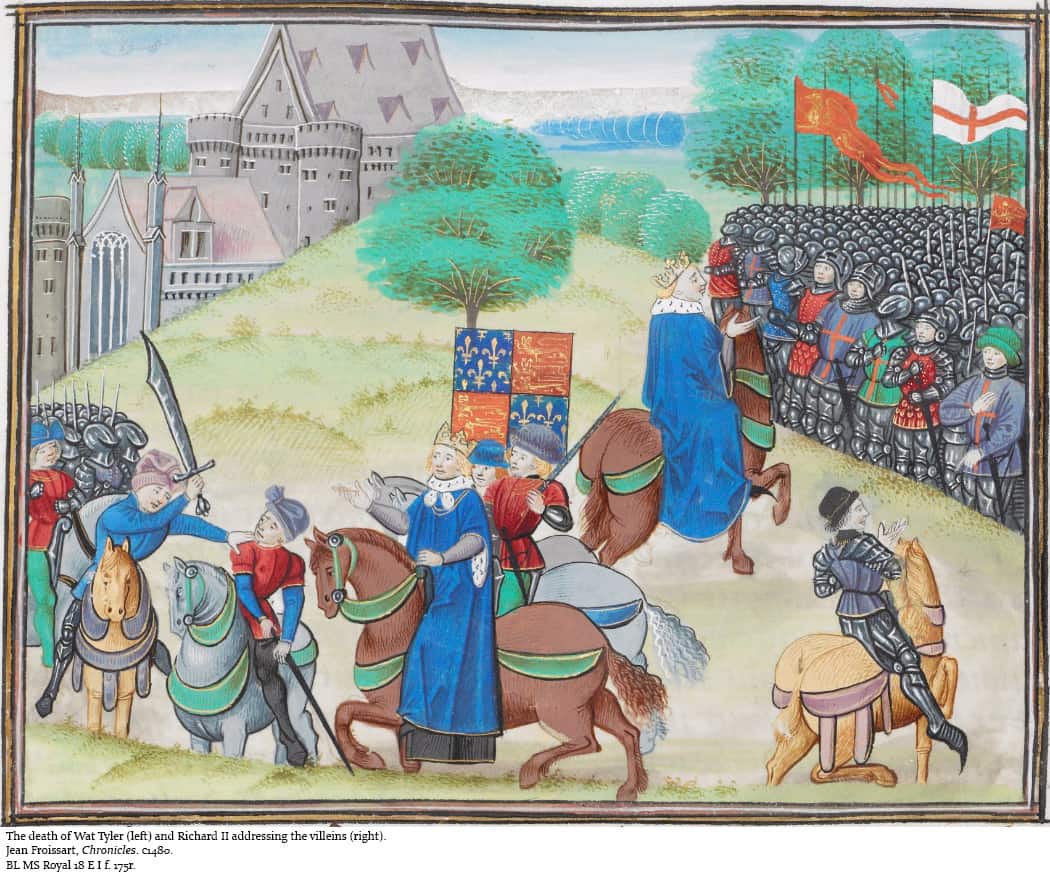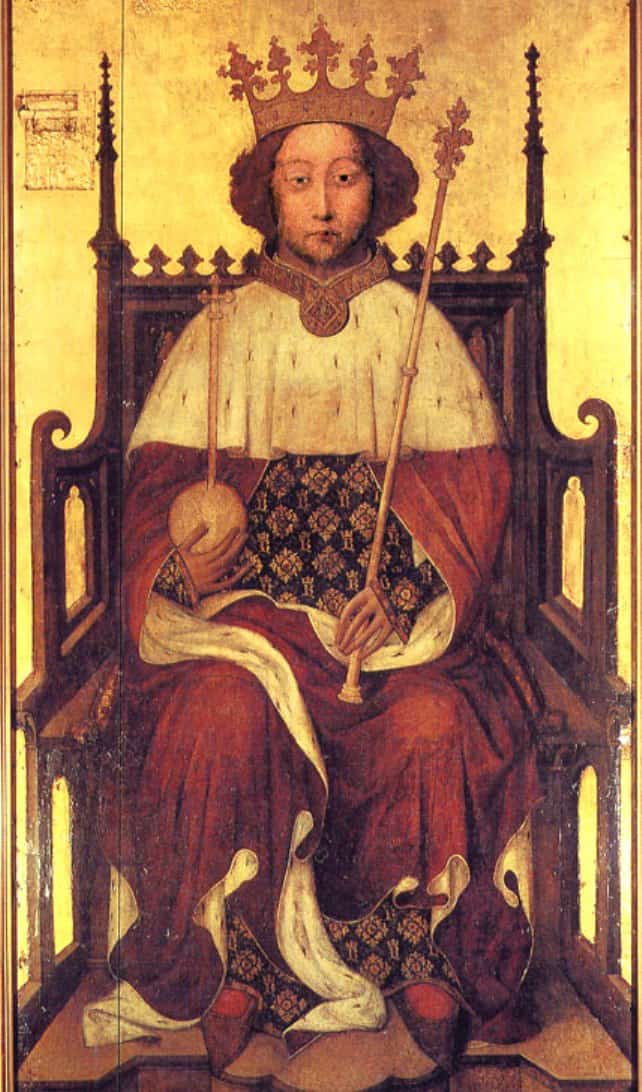
ADVERTISEMENT - CONTINUE READING BELOW
1. A Peasant Revolt Put Down by Treachery
Members of the Plantagenet Dynasty were not above treachery and deceit when it suited their needs, as illustrated by how King Richard II put down a peasant revolt. The downtrodden English peasants’ discontent came to a boil in 1381, when an unpopular poll tax was enacted. That May, officials attempting to collect the tax in Essex were violently resisted. Resistance spread and caught the government of the then fourteen-year-old Richard II by surprise with its vehemence and speed. Rebels seized and burned court and tax records, emptied the jails, and visited vigilante justice upon unpopular landlords and employers who fell into their hands. They demanded an end to serfdom, lower taxes, the dismissal of unpopular officials and judges, and marched on London.

ADVERTISEMENT - CONTINUE READING BELOW
On June 13th, 1381, a contingent led by a Wat Tyler entered the city, massacred foreigners, destroyed the palace of an unpopular uncle of the king, and seized the Tower of London. The king’s chancellor and his treasurer, deemed responsible for the introduction of the hated poll tax, were captured and beheaded. The teenaged monarch agreed to meet Wat Tyler and his contingent on the outskirts of London to hear their demands. There, Wat Tyler treacherously met his end. The young Richard then claimed that he would be the rebels’ leader, promised reforms, agreed to their demands, and convinced them to disperse. As soon as sufficient military force was available, however, the king reneged, and the peasants were brutally suppressed. When a peasant delegation reminded Richard of his promises, he contemptuously dismissed them and sneered “Villeins ye are, and villeins ye shall remain!”
_________________
Where Did We Find This Stuff? Some Sources and Further Reading
Archaeology Magazine, November 11th, 2004 – The Elusive Tomb of Alexander
Bingen, Jean – Hellenistic Egypt: Monarchy, Society, Economy, Culture (2007)
Bowman, Alan – Egypt After the Pharaohs: 332 BC – AD 64, From Alexander to the Arab Conquest (1996)
Catholic Answers – It Is Better to Be Herod’s Pig Than Son
Encyclopedia Britannica – Godwine, Earl of Wessex
Encyclopedia Britannica – Henry II, King of England
Encyclopedia Britannica – Mariamne, Wife of Herod
Flamarion, Edith – Cleopatra: From History to Legend (1997)
Gillingham, John – The Angevin Empire (2001)
Gloria Romanorum – Constantine’s Execution of Crispus and Fausta
History Collection – Royal Scandals that No Amount of Money Could Cover Up
History Undressed – Keeping it in the (Ptolemaic) Family: When Ince* is Best
Holbl, Gunther – A History of the Ptolemaic Empire (2001)
Hosler, John D. – Henry II: A Medieval Soldier at (2007)
Indian Express – Who Were the Sayyid Brothers?
Jewish Encyclopedia – Mariamne
Jones, Dan – The Plantagenets: The Warrior Kings and Queens Who Made England (2014)
King, Edmund – The Anarchy of King Stephen’s Reign (1994)
Luminarium – The Peasants’ Revolt, 1381
Mason, Emma – The House of Godwine: The History of a Dynasty (2004)
Military History Fandom – Sayyid Brothers
Perowne, Stewart – The Life and Times of Herod the Great (1959)
Phoenix, Vol. 20, No. 4 (Winter, 1966) – The Execution of Crispus
Strange History Net – The Most Dysfunctional Family in History: The Ptolemies

